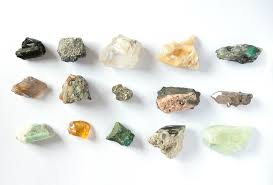
The demand for African rare earth minerals has surged globally, driven by the clean energy transition and the rise of electric vehicles. While China remains the dominant producer, Africa is emerging as the next strategic destination for rare earth investment.
For mining investors and financial analysts, the continent’s vast resources present a rare opportunity for early entry into a high-growth market.

African Rare Earth Minerals Potential
Across the continent, countries such as Tanzania, Namibia, Republic of Guinea, Ghana, Malawi, Burundi, and South Africa are home to significant rare earth deposits. Many of these projects are in advanced stages of development, attracting attention from global investors.
Key Rare Earth Minerals in Africa
1. Ngualla Project – Tanzania
Operated by Peak Rare Earths Limited, this is one of the highest-grade undeveloped deposits in the world. Focused on neodymium and praseodymium, Ngualla aligns perfectly with global EV demand trends.
2. Lofdal Project – Namibia
Managed by E-Tech Resources, Lofdal targets heavy rare earth elements like dysprosium and terbium. Namibia’s stable governance and mining infrastructure enhance investor confidence.
3. Gakara Project – Burundi
Run by Rainbow Rare Earths, Gakara is among the richest rare earth projects globally, with exceptional mineral grades. Despite temporary setbacks, its long-term prospects remain strong.
4. Songwe Hill Project – Malawi
Developed by Mkango Resources, this project is backed by the UK government through export finance, underlining international interest in Africa’s rare earth potential.
Why Investors Are Turning Toward Africa?
1. Geopolitical Diversification
Africa offers investors a way to reduce dependence on Asian supply chains, providing stability and strategic access to critical minerals.
2. Investor-Friendly Reforms
Governments in Tanzania, Malawi, Republic of Guinea and Namibia are streamlining mining laws, offering tax incentives and improved transparency to attract foreign investors.
3. Strong Demand Outlook
The shift toward renewable energy ensures steady global demand for rare earths, positioning Africa as a key contributor to the green economy.
4. ESG and Sustainable Development
Many African projects now integrate environmental, social, and governance (ESG) standards, attracting institutional investors focused on responsible mining.
Challenges and Risk Factors
While opportunities abound, investors should assess:
Infrastructure and logistics gaps
Regulatory changes
Price volatility in global markets
Mitigation Tip: Collaborating with local governments, forming joint ventures, and conducting thorough due diligence can help manage these risks effectively.

The Future Outlook: African Rare Earth Minerals Success!
With increasing global demand and political will to diversify mineral supply chains, Africa is positioned to become a global rare earth hub by 2035. Early investors can benefit from first-mover advantages, partnerships, and long-term value creation.
Conclusion
African rare earth minerals mining sector represents one of the most promising frontiers for global investors. From Tanzania’s Ngualla to Namibia’s Lofdal, the continent offers vast resources, strong government support, and ESG-aligned development pathways. For mining investors seeking diversification and growth, African rare earth opportunities are not just profitable, they’re pivotal for the future of sustainable mining. Contact our expert to keep you connected with reliable businesses in Africa today.